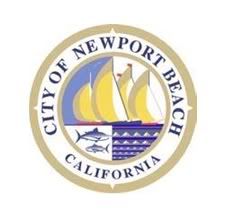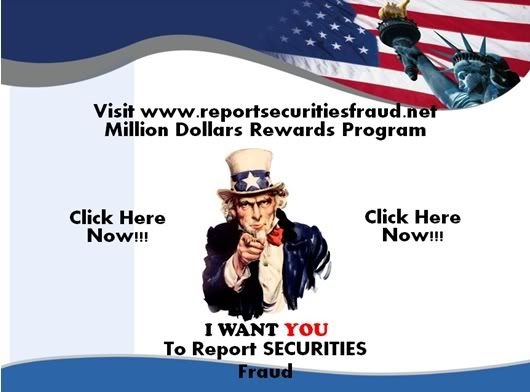MINNEAPOLIS—Today in federal court in the District of Minnesota, a jury found three individuals guilty in connection to a multi-million-dollar Ponzi scheme. Following more than a month-long trial, the jury convicted Jason Bo-Alan Beckman, age 43, of Plymouth, Minnesota; Gerald Joseph Durand, age 62, of Faribault, Minnesota; and Patrick Kiley, age 74, of Burnsville, Minnesota, on 12 counts of wire and mail fraud, one count of conspiracy to commit mail and wire fraud, and two counts of money laundering. In addition, Beckman was convicted on two counts of wire fraud, two counts of mail fraud, two counts of filing a false tax return, and one count of tax evasion. Durand was also convicted on two counts of concealing a material fact from the United States and three counts of filing a false tax return. The defendants were charged in a second superseding indictment on February 22, 2012. All three are being detained pending sentencing.
The scheme, orchestrated by Minnesota resident Trevor Cook, defrauded more than 900 individuals out of a collective total of $158 million. In August 2010, Cook was sentenced to 25 years in prison for his role in the scheme.
Following the verdict, U.S. Attorney B. Todd Jones said, “People save money their entire lives for retirement or to send their children to college. Fraudsters who choose to bilk them out of that money by pretending to be their friends or advisors are some of the worst kinds of criminals. We take our obligation to prosecute them very seriously, and we are very pleased with the jury’s verdict in this particular case.”
The evidence presented at trial proved that between 2005 and November 2009, the defendants, along with Cook and others, defrauded investors by soliciting them to invest money in a foreign currency trading program, which they offered through entities known as Universal Brokerage Services or bearing the acronym UBS. (The UBS entities had no legitimate affiliation to the global provider of financial services, UBS AG.)
Cook operated the currency program through various foreign currency trading firms, including, but not limited to, one located in Chicago and another in Switzerland. To induce investors, the defendants, Cook, and others, directly or through individuals acting under their direction, made false representations regarding the performance, safety, and liquidity of the currency program.
Specifically, they alleged that the currency program would earn a double-digit rate of return, typically between 10.5 and 12 percent annually, with little to no risk to investment assets. The men also claimed that investor assets could be withdrawn at any time and would be held in segregated accounts. Those representations, however, were false. When soliciting victim investors, the men also made misrepresentations and omitted material information concerning their backgrounds and qualifications as well as the backgrounds and qualifications of those working at their direction.
Once investments were made, investors generally received statements from the UBS entities, and some received investment return checks, also from the UBS Entities. the defendants, Cook, and others caused the production and transmission of those statements and checks. The statements gave the false appearance that the currency program was performing as promised, and that investments were held in individual, segregated accounts. Most investors, however, failed to receive statements or checks from the custodians in actual possession of their funds.
In 2007, when UBS AG filed a trademark infringement lawsuit against Cook, Durand, Kiley, and others, the defendants began operating their scheme under other names, including, but not limited to, those identified by the terms “Oxford” and “Universal Brokerage FX.” They then continued to solicit investors for the currency program, utilizing telemarketing, media spots, and seminars in which they repeated the false representations noted above.
While some investor assets were invested in foreign currency trading, most trading was high risk and often resulted in significant losses. the defendants, Cook, and others concealed this fact from investors. Moreover, the defendants, Cook, and others concealed that the currency trading firm in Switzerland was in dire financial condition and, instead, continued to solicit investor assets to be sent to that trading firm. The defendants also concealed from investors their own concerns about Cook’s operation of the currency program and alleged illegalities relative to the currency program.
Between 2005 and July 2009, the defendants, Cook, and others secured approximately $194 million in investments for the currency program. Of that amount, only about $109 million was actually sent to currency trading firms; approximately $68 million was lost in higher-risk trading; and $52 million was paid to investors in the form of lulling payments (payments that purported to be returns on investments or withdrawals of investments). Moreover, approximately $30 million in investments were diverted to fund the business and personal expenses as well as other investments of the defendants, Cook, and others. This included compensation received by them. In addition, Cook used funds to pay gambling debts, purchase a real estate development in Panama, and acquire the Van Dusen Mansion in Minneapolis.
At the same time that Beckman was soliciting investors for the currency program, he was also attempting to purchase a minority ownership interest in the Minnesota Wild hockey team. Beckman made misrepresentations to the National Hockey League, falsely claiming that investments in certain trading accounts were actually his assets. He also claimed an extraordinary amount of assets under management (AUM). This misrepresentation gave shared currency program agents and investors a false sense of security as to the currency program.
In addition, Durand concealed $11,839 from the court-appointed receiver, who was searching for assets of the currency program fraud. Durand had the cash exchanged for Swiss francs and showed that the francs belonged to someone else. Durand also filed false individual income tax returns for tax years 2006, 2007, and 2008.
Beckman also filed false individual income tax returns for tax years 2007 and 2009. In addition, he failed to file an individual income tax return for 2008. For that year, Beckman and his wife owed more than $1.3 million in income taxes. In addition, in February 2008, Beckman caused two life insurance policies for an investor to be sold, stealing the proceeds in order to prop up a currency trading account held in his name at PFG. That account had incurred a loss of approximately $15 million.
For their crimes, the defendants face a maximum potential sentence of 20 years in prison on each wire fraud and mail fraud count, 10 years on each money laundering count, and five years on the conspiracy charge. In addition, Beckman and Durand face a potential maximum penalty of three years on each false tax return count, and Beckman faces a potential maximum penalty of five years on the tax evasion charge. U.S District Court Chief Judge Michael J. Davis will determine their sentences at a future hearing.
On June 21, 2011, another co-conspirator, Christopher Pettengill, pleaded guilty to one count of securities fraud, one count of conspiracy to commit wire fraud, and one count of money laundering for his involvement in the scam. He awaits sentencing. On July 18, 2011, co-conspirator Jon Jason Greco pleaded guilty to two counts of making false statements to federal agents, specifically, lying about assets he had concealed in relation to this case. Greco was sentenced to 10 months in prison.
************************************************************************
Report Securities Fraud by Calling 1-888-482-6825 or by visiting
www.reportsecuritiesfraud.net
















No comments:
Post a Comment